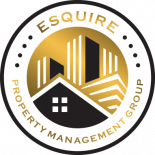Investment Property Tax Deductions and Tax Strategies for Real Estate Professionals
The cost of hiring a property management company to handle investment properties is significantly less than most property owners believe. Investment property owners who manage their own property with the idea that property management costs are too much might be mistaken as to the actual real costs. Additionally, a large percentage of property owners do not take advantage of all of the tax strategies available to them. For example, if a property owner manages their investment portfolio out of their home office there may be some business related items they are not expensing. Interest in all forms including mortgage interest, equity lines of credit interest, and any business loan interest are all expenses which are typically deductible. Losses like casualties, disasters, and thefts are expenses which properly accounted for are deductible.

The most overlooked deduction is depreciation on investment properties, and for real estate professionals as defined by IRC 179, an investment property owner can supercharge their depreciation deductions. To maximize one’s return on investment each property owner should educate themselves about tax strategies, and thoroughly evaluate their entire tax planning roadmap with a tax attorney or competent certified public accountant.
Combined Tax Bracket Percentage Determines the True Cost of an Expense in Your Investment Property Business
First of all a property owner must fully understand this basic concept. If their annual income from all of their activities placed them into the combined, federal, state, and local tax bracket of 50%, then their ordinary and necessary business expenses are in actuality fifty cents ($.50) for every one dollar ($1.00) spent. It’s simple to think about it this way: If a one dollar ($1.00) is spent on advertising then that one dollar ($1.00) is legally expensed. If a person is in the 50% combined tax bracket then they have actually only spent fifty cents ($.50). This is because the one dollar ($1.00) they spent actually reduces their taxable income by one dollar, thus, reducing their tax liability by fifty cents ($.50). So each ordinary and necessary expense is truly only 50% of the actual cost.

Now that you have your mind around that concept if a property manager is charging you $200/month to manage their single-family residence rental property the actual (end of year) cost to the owner is only $100/month because the property management fees are an ordinary and necessary business expense and fully deductible. Now consider that 50% reduction in your perceived cost and maybe property management doesn’t seem so expensive anymore. Add to that the impact on your time, energy, effort you spend managing that property. Add to that the gasoline expense necessary to drive by that property once or twice a month.
Finally, add to that the comfort of knowing a professional property manager could in fact be taking care of your property and you wouldn’t have to have all of these expenses, time, energy and effort and maybe, just maybe, you would reconsider using a property manager going forward because you now realize that they really aren’t that expensive for the services they provide.

David currently is the broker/owner of several real estate related businesses which manage and maintain 300+ client properties on the San Francisco Peninsula.
Trust, transparency, and performance guarantees are the foundation of these businesses. David challenges anyone to find a PM professional that offers services similar - extensive education, customer service, and performance guarantees.
David also provides consulting for his clients on property development feasibility, construction, and complex real estate transactions.
David has authored a published law review article, three real estate books, and over 150+ real estate blog articles.
- “Wildfires, Insurance & Mortgages: Will Your Home Survive the Financial Aftermath?” - March 3, 2025
- What’s Driving California’s Commercial Real Estate Shakeup? - February 27, 2025
- Critical Issues in Triple Net Leases Investors Should Know - February 14, 2025

